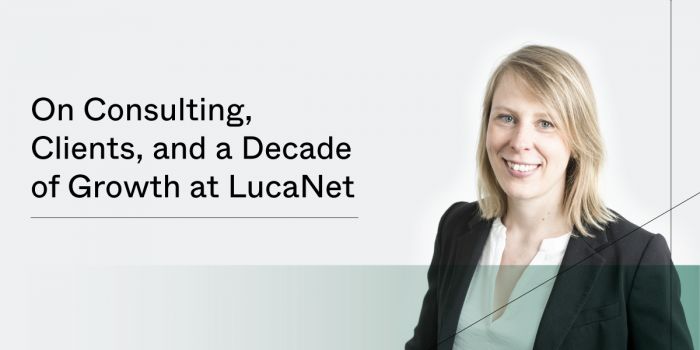
Why Diversity Increases The Success of Companies

Many companies still see it as an image issue but the business case for diversity, equity, and inclusion in the workplace speaks for itself and strongly so: The McKinsey 2020 report on Diversity already predicted that companies including multiple perspectives from their diverse talents were likely to emerge stronger from the pandemic crisis. Companies with particularly gender-diverse leadership teams are 21% more likely to have above-average profitability than companies in the bottom quarter of the industry standard for gender diversity (2018 McKinsey Report: Delivering Through Diversity). The 2020 report confirms that the higher the representation, the higher the likelihood of outperformance. It can lead to better teamwork and productivity. In a talent market that is now more than ever candidate-led, diversity cannot take a back seat. So the key to success is diversity alone? As you will read below, the answer is no, without inclusion, diversity won’t work. Inclusion refers to the constructive and active involvement of all diversities within an organization. With the essential understanding and strategic goal of creating an empowering, sustainable, and inclusive work environment, we asked ourselves “How can we become more diverse and more inclusive for our people, customers, and partners?” The approach was to start at the beginning and having a D&I specialist by our side, Olla Jongerius. With her Diversity & Inclusion Consultancy BeamReach, she analyzed LucaNet’s status quo on D&I.
In honor of International Women’s Day, our Head of People, Organization & Legal, Silvia Heredia Minthorne de Kläner, met Olla to discuss gender bias in the workplace and how we can start becoming more inclusive today.

Silvia: Olla, I'm very excited to talk to you about diversity, inclusion, and equality in business. Before we get started, though: The motto for this year’s International Women’s Day is "Break the Bias". When I think about all the prejudices or biases, I've had to deal with: Starting with my non-German last name and appearance, over the attributions that as a working mom I either must fail at my job or as a mother. Do you also know such bias?
Olla: I never lived up to the typical image of the cute little girl. That made me an outsider at an early age. Fortunately, my family was very modern, so I didn't perceive it as "being different" at all. But in kindergarten and later in school I was often told things like: “Act like a girl. Stop being so bossy. Why don't you wear dresses?”
For many years I was told that I could only be a successful woman if I was nice and pretty. I already rebelled against such "Disney clichés" already at the age of 6. But still, in the first years of my professional life in the tech industry, I tried not to stand out among my colleagues. Which were more or less all white men in their 40s, so I put my hair up and bought pantsuits in neutral colors. Until one day I asked myself: Why? Why can't I, as a young woman, be at least as good as my male colleagues and at the same time still wear colorful dresses? That's when I stopped pretending to be someone I am not.
Silvia: Absolutely, we can only bring our full potential if we can really be ourselves and feel accepted as the “authentic me”, also in a professional context. For me, I believe that I am in a leadership position not in spite of, but precisely because of my three children. Because I bring experiences and perspectives to LucaNet that might otherwise be missing. And that's exactly what we want to do today: Talk about the opportunities and benefits of diversity. Do you think everyone has understood what diversity means and why it is so important? For example, for the success of a company?
Diversity Needs Managed Inclusion
Olla: Especially in Germany the Black Lives Matter movement gave Diversity, Inclusion & Equity an additional boost. Suddenly, executives thought: Okay, we need more people of color, we need more women in the company. Or it will be declared a marketing thing: Hey, let's feature Black people on our website. Or: Hey, we treat diversity like its Christmas. February is Black History Month, March is about women, June is for LGBTQIA+. And on July 1st we are back on business as usual. But – diversity and inclusion are not seasonal. And it doesn't work without managed inclusion – in fact, it can backfire. Because minorities and historically underrepresented groups quit when they don't find an inclusive environment where they feel accepted.
And ultimately, of course, it's not just about nationalities. It's about different education, different life experiences, different personalities, simply everything. How well diversity works depends above all on how inclusive the working environment is. Without inclusion, diversity will never work. You can't just decide: From now on, we are diverse. But then all employees still have to think and act in German, for example. Or in the cafeteria there is no food that is compatible with their religion.
There is a very descriptive formula from Deloitte: Diversity + inclusion = better business outcomes. Because that means leveraging different perspectives and points of view. When you do that, you have innovation, creativity, more engagement, and more productive teams. You also suddenly understand your customers much better because you reflect them in your company.

Diversity Is a Potential, Not a Challenge
Silvia: Diversity should be seen as a potential rather than a challenge. Because the more diverse and colorful the people in a company, the greater the innovative output. This is also accompanied by an increase in productivity. This has been proven time and again by a wide variety of studies and surveys. But it also strengthens the company’s image and the team spirit. This in turn leads to greater attractiveness as employer and thus lower turnover.
However, diversity does not only mean a diversity of cultures, as you said, but also of different life experiences or circumstances. You have carried out an audit at our company and evaluated various areas in terms of diversity, inclusion, and equity. In my position here at LucaNet, but also as a mother on a personal level, I was particularly happy with how well we scored in terms of benefits and general conditions. Our work model offers very flexible options for arranging working hours or working on a mobile basis. I think in Germany, many mothers still face the problem that they would like to return to their jobs, but the setting just doesn't fit. Because there may be core working hours, the commute is very long, or meetings take place early in the morning or in the evening. Of course, this does not only affect people with children, but everyone. Flexibility in terms of place of work, but also working hours, is extremely important when you have to reconcile work and private life.
But back to the audit you did with us. What was your approach? Can the level of diversity, inclusion and equality actually be measured?
How Diversity & Inclusion Can Be Measured
Olla: Yes, in fact there are different metrics. I always start with management. Even though I believe that a lot should come from the employees themselves, the right mindset must be there at management level. Otherwise, it becomes a "nice to have". It is about measuring the awareness of managers, how the company positions itself, how transparent structures and processes are.
For the measurement itself, I use a model called GDIB, Global Diversity and Inclusion Benchmark. At LucaNet, we conducted seven interviews, one of which was with your board, we worked with four focus groups, and went through 59 policies, documents, and surveys. We evaluated this data using the GDIB and worked with you to derive or develop measures from it.
This is a very good and objective method that companies can also use themselves to find out where the company stands, where it wants to go and how it can best get there. But of course, it takes courage, honesty and ultimately a lot of data to get a reliable result.
How To Make Inclusion Successful
Silvia: Before we started working with you, we had already formed a task force on diversity and inclusion. And I'm really proud of the willingness and commitment that exists throughout the company. But I also think it's important for the management team to send clear signals and anchor diversity, equality, and inclusion in the company's values. For example, English has been our corporate language quite some time. Or we have a women’s network with regular events and are rolling out a gender-neutral language guideline.
What other concrete tips do you have to make the working environment more D&I-friendly?
Olla: At the organizational level, there's one really simple thing that anyone can do. Don’t just celebrate Christmas, think of Hanukkah or Orthodox Christmas. Think about Chinese New Year. Because if you're a company with different cultures and different religious backgrounds, people who don't celebrate a Catholic Christmas feel left out. On the other hand, it also promotes an awareness of other customs and may awaken the curiosity of employees.
You just mentioned it: Be mindful of inclusive language. Both in internal and external communication. Of course, this is associated with more effort, because you first have to evaluate how you communicate and which terms are used. Do we express ourselves in a gender-neutral way, do we consider all genders, are we respectful of other ethnicities?
And last but not least, I recommend creating a Code of Conduct. So that all employees have a clear picture of the values and guidelines that the company represents. In this way, discrimination can be prevented, and respectful interaction can be promoted. All people in the company should act in accordance with the corporate culture – even if they come from different cultures or environments and have different personal values. In this way, diversity will hopefully become the status quo very soon.

About Olla Jongerius: Olla Jongerius Russian-born, New Zealand-raised, Spain and Germany-educated D&I professional with high energy, creative and positive mindset and working experience from South Korea, Australia, Estonia, France, Germany, Russia and New Zealand. She is a founder of the Diversity & Inclusion Consultancy BeamReach and a visiting lecturer on the topics of Diversity and Inclusion, Community Building and Communication Across Cultures at ESMT Business School, GISMA and SRH University. Her goal is to create equality in the workplace and offer safe and brave spaces to those who normally do not have a voice and normalize difficult conversations.
She supports companies with awareness workshops, organizational assessment, designs strategy & advises on inclusive communication & behavior, she works with small startups, big corporates, NGOs and nonprofits.






